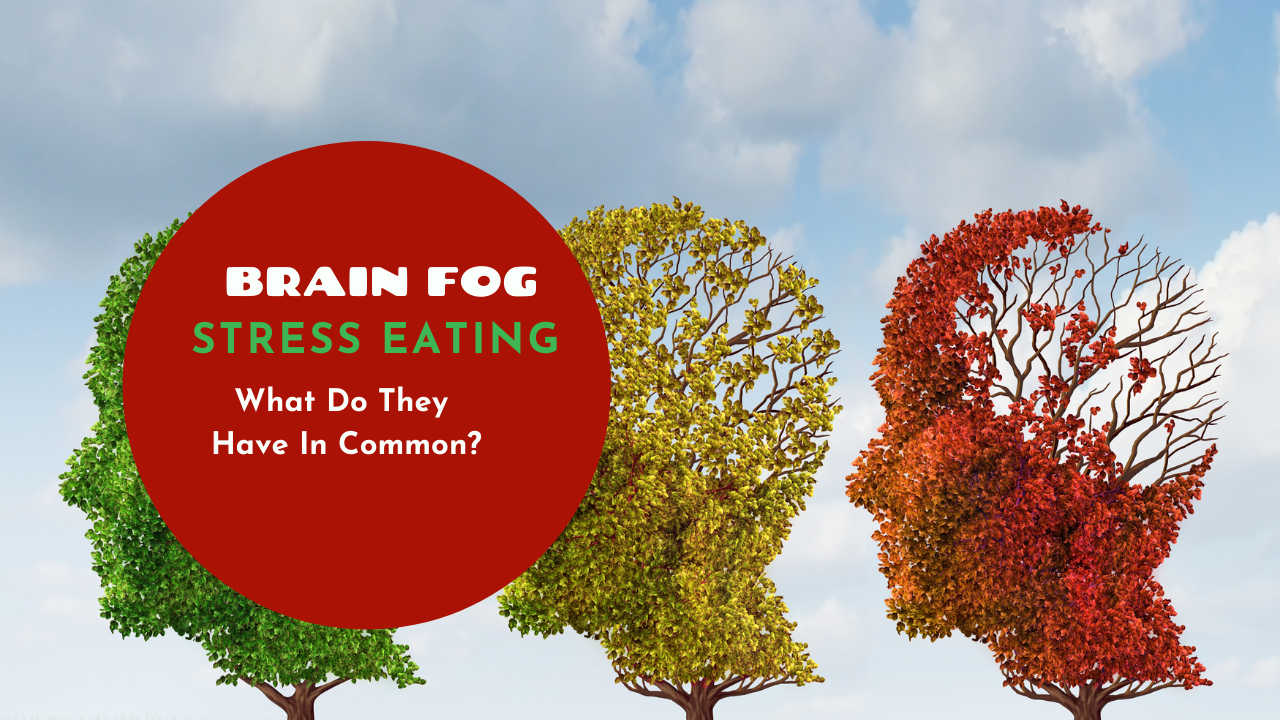Brain Fog and Stress Eating
May 04, 2021
Do it feels like your head contains cotton candy where there once was dense intellectual nervous tissue? The lights are on, but there’s nobody home. You may have difficulty making up your mind. Small decisions are a big deal. You need more coffee to focus, more snacks to stay awake, and more booze at night for temporary relief from the fog. In more severe cases, you might have headaches, problems with your vision, or even nausea. Raise your hand if this is you. I know, I've been there too.
Do you notice that you are eating more than usual? Eating when you aren't actually hungry? You sleepwalk to the fridge and wake up with crumbs in the bed and all over your face. You may have a double whammy of stress eating and brain fog.
It's common for women going through menopause to complain of what researchers sometimes call "brain fog" -- forgetfulness and difficulty concentrating and thinking clearly.
What causes brain fog?
Brain fog can be a symptom of a nutrient deficiency, sleep disorder, bacterial overgrowth from overconsumption of sugar, depression, or even a thyroid condition. Other common brain fog causes include eating too much and too often, inactivity, not getting enough sleep, chronic stress, and a poor diet.
It could be hormonal. Changes in mood or sleeping habits could be contributing to your foggy head feelings, but it could also be due to the fluctuating hormone levels while your body tries to restore balance.
Poor sleep habits contribute to brain fog in a few different ways. Irregular sleep and wake times, getting less than six to eight hours of sleep, or blue light exposure before bed disrupts your natural circadian rhythm, aka your internal body clock. Blue wavelengths decrease the hormone melatonin that is essential for deep REM sleep. During the hours of 10 pm and 2 am, your body and brain should be in a state of detox. If your brain is in an active state during this time, it disrupts the body’s natural detoxification process and can contribute to fogginess.
Diet deficiencies and food sensitivities. A vitamin d deficiency may be behind brain fog. A decreased in vitamin d levels is associated with impaired cognitive function. Unidentified food intolerances such as gluten and food dyes can also contribute to the foggy head feeling you may be experiencing.
Stress, chronic stress can wreak havoc on your body. When your body perceives a stressful situation, it activates the sympathetic nervous system (SNS), or the fight-or-flight response. This response triggers the release of epinephrine, also known as adrenaline, that diverts energy away from your body’s normal functions and towards any stressors. When you are stressed, you tend to eat more. This makes it difficult to think clearly, harder to focus, and could exhaust your brain. Learning to reduce your stress over time through interventions like meditation, exercise, or dietary changes, may help when your brain feels foggy.
One way to combat brain fog and stress eating is to feed your brain. Your brain is made up of a lot of fat and protein. If our diets are low in both of these food groups, it can cause these issues. Sugar and processed food sources are not what your brain needs. Eat more plant-based diets are great with enough good protein, and good fats are best. Get plenty of omega 3 fatty acids (for their anti-inflammatory powers), a lot of antioxidants, and coenzyme Q10 (essential for energy), and boost your body’s natural energy production and regeneration with essential vitamins and minerals.
The Hair Tissue Mineral Analysis and possibly advanced blood work that looks at your nutrient levels and will detect imbalances in nutrients, toxic elements, deficiencies that could be causing your brain fog.
We are busy women, and we need our brains to be firing on all cylinders. Brain fog is not a sign of getting old. You can make adjustments in mental attitude, diet, and self-care to alleviate the symptoms and frustrations of not feeling all there. Take care of your brain, and it will take care of you.
Melesha 🧡
Stay connected with news and updates!
Join our mailing list to receive the latest news and updates from our team. When you join you get our free checklist 'Why diets don't work'.
Don't worry, your information will not be shared.
We hate SPAM. We will never sell your information, for any reason.

